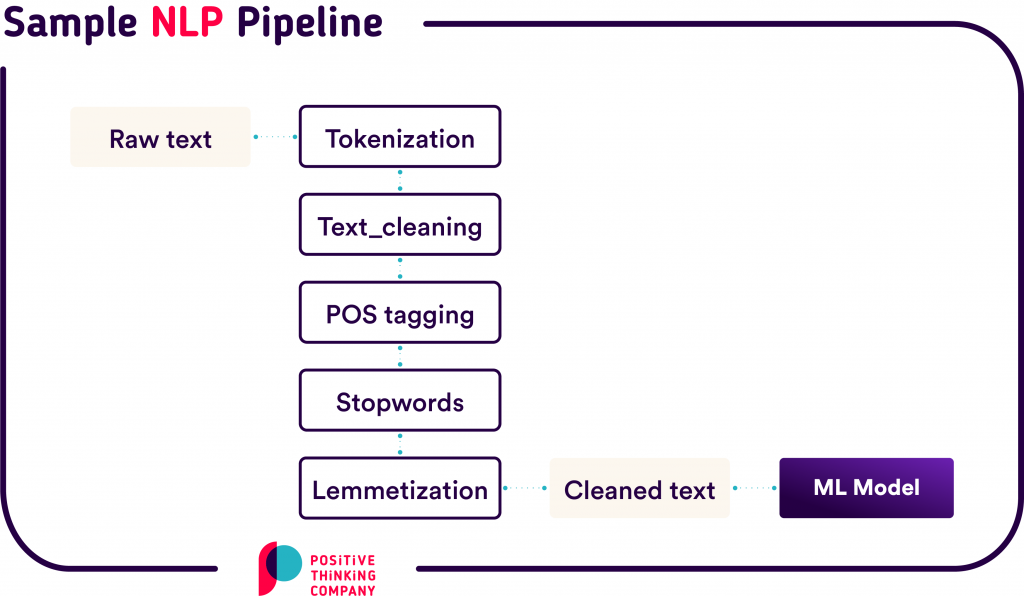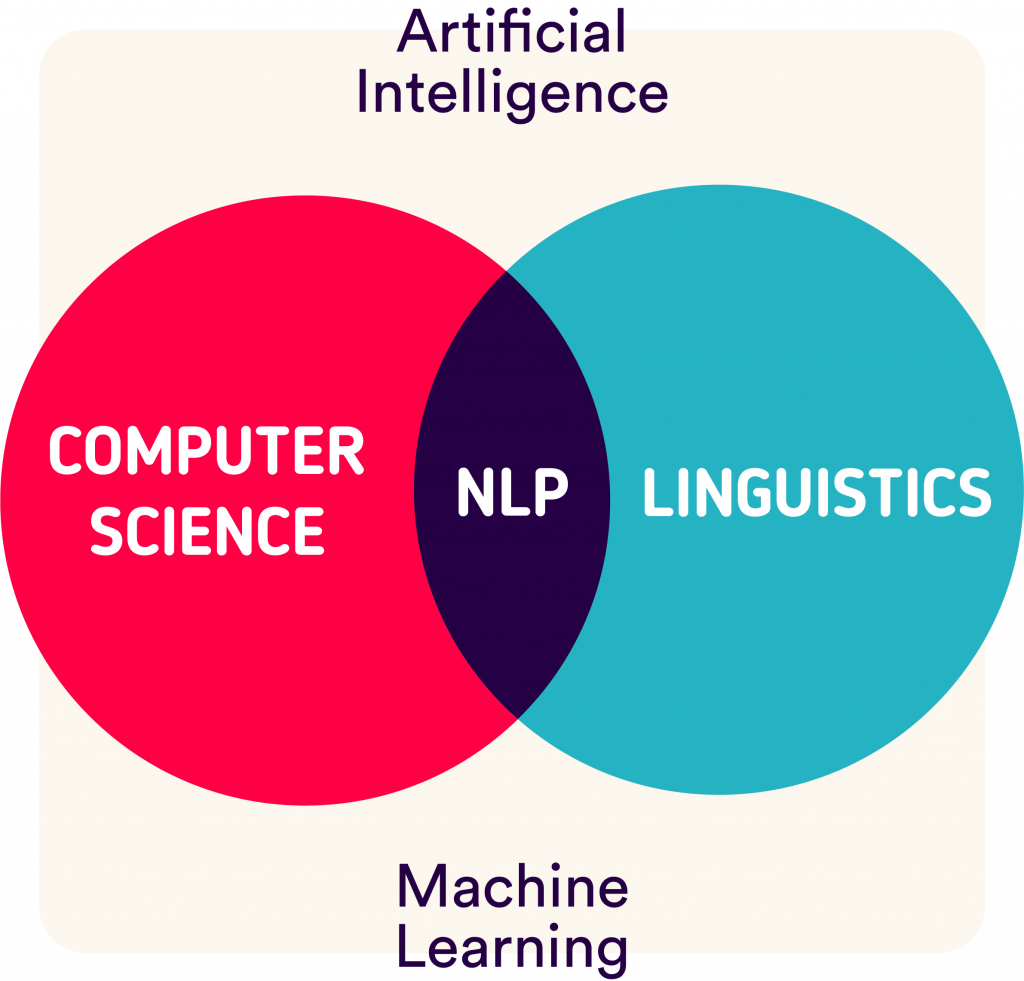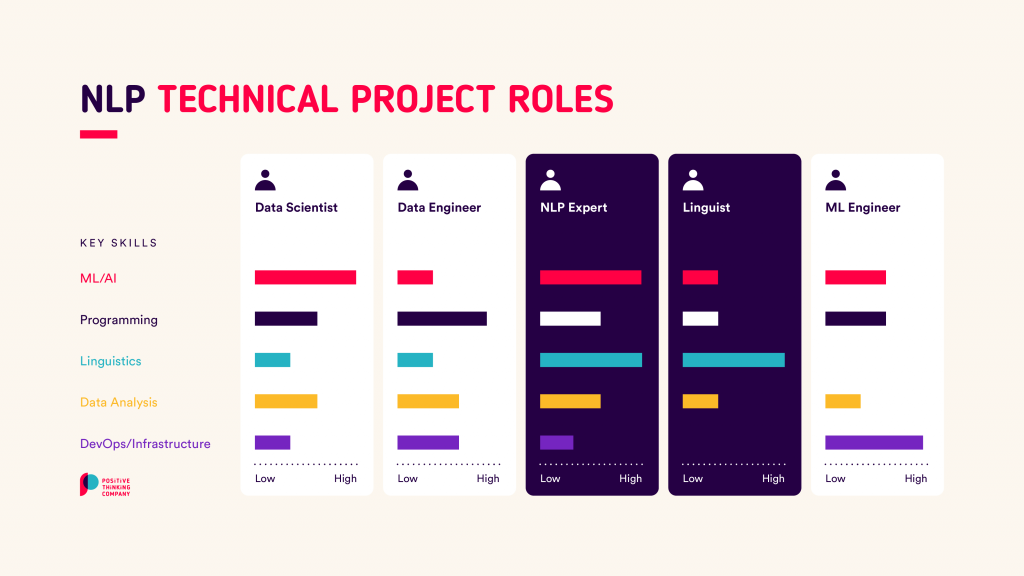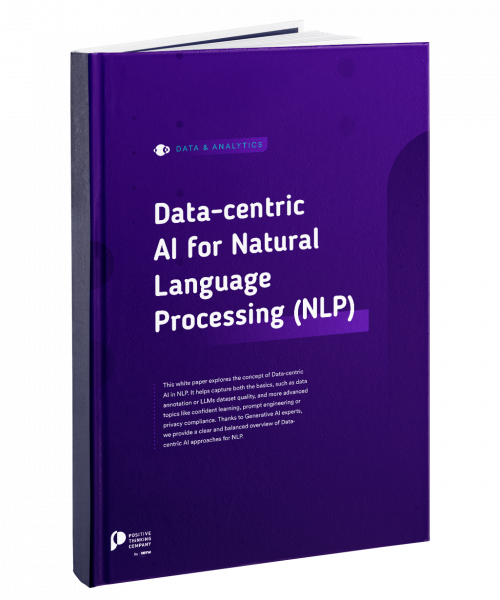The recent releases of ChatGPT and GPT-4 bring the power of Natural Language Processing (NLP) to the consciousness of a broad public. Even if they currently have their shortcomings, their results remain impressive (or even disruptive). Among all potential usage, these Large Language Models (LLMs) enable anyone to summarize text at a glance, write any type of content, answer simple to complex questions, or write programming code and solve mathematical problems. Wondering why the NLP use cases your organization tries to implement deliver rather disappointing results?
The Failure of an NLP Project Can Be Prevented
We observe again and again that the necessary experts are brought into NLP projects far too late, thus hindering their success. This is most of the time because the complexity of NLP is not well-known, and it is overseen that it requires specialized knowledge and a specific skill set. We have experienced that a lot of valuable time and budget are already used up when we come into projects. Not to mention that decisions have been taken at the very beginning and hinder a meaningful continuation of the project at some point.
The release of ChatGPT makes it obvious that there is so much potential in NLP. The advances in the field have been enormous over the past years, use cases bring added value to companies in all sorts of industries. The German federal government invests in Artificial Intelligence (NLP is a sub-discipline of AI) with the goal to make Germany and Europe one of the leading locations for AI.1 The Deloitte Tech Trends 2023 mentions AI and topics around it – like its operationalization and explainability – as their first trend.2 The French Railway Company SNCF uses AI to make informed decisions concerning the circulation of trains, to make traveling saver and to be able to provide better information for customers.3 The American media company Bloomberg just released BloombergGPT, an LLM designed especially for the financial domain, that allows working on a wide range of NLP use cases.4
Recognizing When an NLP Expert is Needed
Language and text data, the kind of data NLP takes care of, is literally everywhere. Working through it manually can get tiresome and inefficient. Also, there might be patterns in the vast amounts of data that are invisible to the bare eye.
In some companies the amount of language data is bigger, in others, it is smaller, however in every organization there is communication, be it written or spoken, between co-workers or customers and the company. Some additional potential sources of language data could be:
- Latest industry news available on a regular basis;
- Large amounts of legal documents relevant to your own business;
- Documents filled out by customers or clients;
- Customer service data recorded in a system or customer reviews;
- Marketing and product-related content, such as articles, product descriptions, or social media posts.
There are many ways to make processes around language data more efficient by automating them. There are possibilities to get helpful insights by analyzing your data and making predictions from it. In all the cases, in which you work on such a project, you most probably work on an NLP project, and you should get advice from an NLP expert. By this, you avoid the failure of an NLP project in your organization and you will experience how an NLP project should ideally be set up from the very beginning, paving the way for your project success.

Wait – Why Should We Trust an NLP Expert and not a Data Scientist?
Language data is a very specific and complex kind of data. Most of the time it is available only in an unstructured way as written or spoken pieces of text – articles, notes, documents, recordings etc.
There is a wide variety of types of text depending on the context for or in which it was produced. Depending on the use case you are working on, the types of text that are analyzed and used for training models can be very heterogeneous.
On top of that: A language is alive by nature – it changes over time, new terms and grammar are introduced, because of the influence from other languages or new technology. Language follows rules, however in some types of text the rules are stricter than in others, an edited and published legal text differs a lot from a note that was taken during a phone call. Customers that have to fill out documents or write reviews might not be native speakers of the language they write in and make mistakes.
Many aspects need to be taken into account in an NLP project. Depending on the goal of the project, you need to decide what parts of data you need and what method should be used. The preparation of the data depends on the method (e.g. binary classification, multiclass classification, clustering) and the quality of the data. It is often necessary to establish an annotation process to prepare annotated data. Augmentation methods can help to generate more data from a small batch of annotated data. Other methods help with cleaning data annotations that are qualitatively not satisfactory. All steps from preprocessing annotated data to evaluating the created model are combined in one or several NLP pipelines that need to be set up properly. A proper evaluation of the models is another step that needs to be considered, and depending on the use case, different evaluation methods are applied.

Source: https://medium.com/mlearning-ai/basic-steps-in-natural-language-processing-pipeline-763cd299dd99
It also is useful to clarify early in your project if you are going to work with computationally intensive methods, like very complex ML (Machine Learning) models or deep learning approaches. If this is the case, you need computing power in the form of GPUs, or cloud services like Azure or AWS. In case this is legally not possible (which is often the case in the banking industry) you might need to integrate GPUs into your on-premise infrastructure.
Some decisions need to be made at the very beginning; others are made during the project depending on interim results, all contributing to the NLP project success. The job of an NLP expert is:
- Knowing all the options;
- Deciding which ones are suitable;
- Implementing and testing the solution;
- Deciding if the results can still be improved with the chosen approach or if the limits are reached.
How to Find the Right NLP Experts?
A typical background of an NLP expert is a degree in computational linguistics. NLP is an interdisciplinary field of knowledge. It combines linguistics, computer science, mathematics, and AI only to name the most important fields. Computational linguists are trained in exactly these fields with the goal to become NLP experts.

Source: https://clevertap.com/blog/natural-language-processing/
They have a deep understanding of language and the general functioning of languages. This is crucial to be able to accurately analyze language data, identify patterns and choose algorithms that capture the nuances of language. Computational linguists know how to develop proper data processing pipeline that extract relevant linguistic features from text data. They know how to create annotation schemes to be able to create annotated data for training and evaluating NLP models.
Mathematical knowledge in logic and statistics enables them to formalize the meaning of language and to draw statistical inferences from existing data. Methods from AI like ML or deep learning allow to identify patterns and correlations to make predictions from annotated sample data.
Can the NLP Expert Do it All?
It actually depends on what “all” means.
In case your NLP project is a onetime analysis, or a Proof-of-Concept (PoC) focused on just the NLP functionality which results in a demo, report or presentation describing the outcomes, the NLP expert can do it all, ensuring the project success.
However, in case the result of your NLP project is a functionality or tool that is deployed to its users, advanced programming skills and knowledge in DevOps/MLOps and infrastructure topics is necessary. In this case, it makes sense to work not only with an NLP expert, but also have a Data Engineer and an ML Engineer on the team.
In bigger projects roles like the data scientist who is not specifically focused on language data but is very strong in machine learning methods and a linguist who is very strong with language data are useful additions.

The chart shows the typical skills of the different project roles, one person could also cover two roles, e.g. NLP Expert and Data Scientist or NLP Expert and Linguist, both combinations increasing the likelihood of your NLP project success.
1https://www.bmwk.de/Redaktion/DE/Artikel/Technologie/kuenstliche-intelligenz.html
2https://www2.deloitte.com/de/de/pages/enterprise-performance/articles/tech-trends-2023.html
3https://www.sncf.com/en/innovation-development/innovation-research/technologies-of-future/artificial-intelligence
4https://www.bloomberg.com/company/press/bloomberggpt-50-billion-parameter-llm-tuned-finance/
Selected NLP Case Studies
- Developing an Automated Sentiment Analysis Service for Julius Bär
- AI-enabled Customer Support Agents for a Leading Energy Provider
- Developing a Virtual Assistant and Industrializing NLU Activities of a Telecommunications Leader










